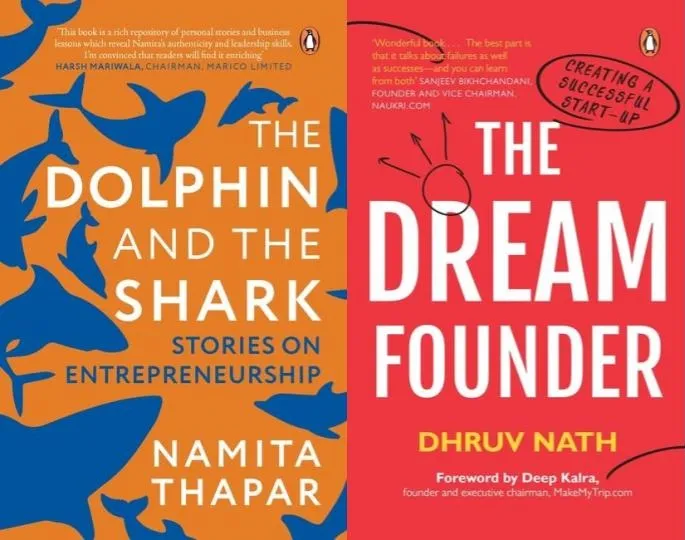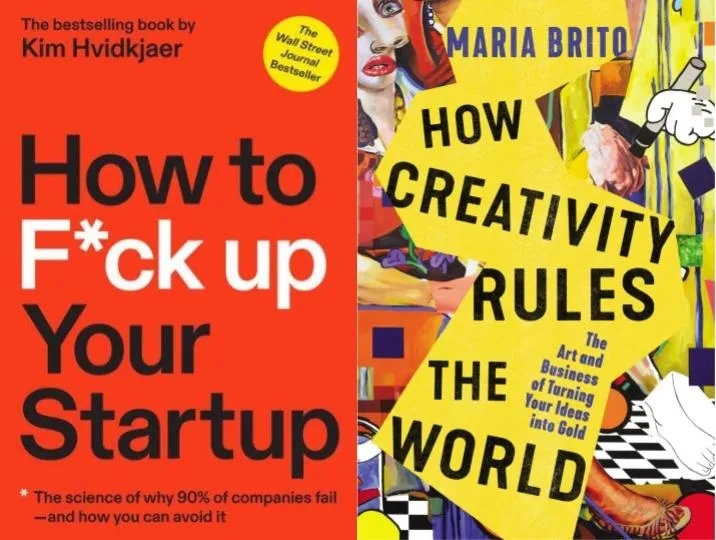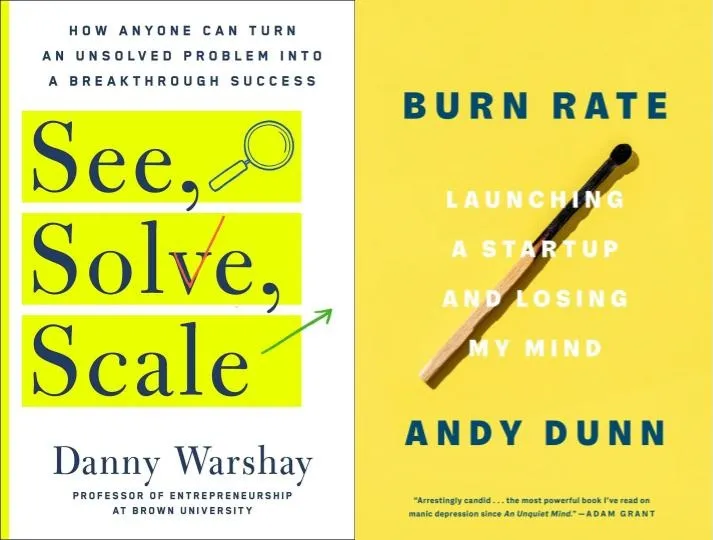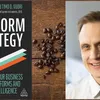10 entrepreneurship books of 2022 on the highs and lows of building a startup
YourStory picks 10 books on entrepreneurship and the startup ecosystem that stood out this year.
This year, books about the startup ecosystem in India and across the world threw light on the constantly shifting entrepreneurial landscape, especially in the wake of the pandemic that changed the rules of the game.
From the fundamentals of fundraising, by Shark Tank India judge Namita Thapar, and the complex patterns of failure, by serial entrepreneur Kim Hvidkjaer, to leading a breakthrough in any sector by entrepreneurship professor Danny Warshaw, the books this year touched upon a wide range of topics.
Here are 10 books on entrepreneurship and the startup ecosystem that stood out in 2022.
The Dolphin and The Shark: Stories on Entrepreneurship
The popularity of the reality show Shark Tank India reflects the boom in the Indian startup ecosystem. Namita Thapar, Executive Director, Emcure Pharmaceuticals, and a Shark on the show has penned her experiences being a judge and her business journey in The Dolphin and The Shark.
She talks about why every founder needs a mentor as they scale up, why organisations should encourage dissent, and the four Fs of the funding framework—founder, foundation, financials, and fit.
Read Namita’s interview with HerStory here.
The DREAM Founder: Creating a Successful Startup
Dhruv Nath is an angel investor, Director at Lead Angels, and a professor at Management Development Institute, Gurugram.
Advising early-stage founders in his book, The DREAM Founder, Dhruv emphasises the need for a clear grasp of unit economics, marketing communication, and fundraising fundamentals.
The book also features short interviews with successful entrepreneurs, who share their hard-earned lessons from their long journeys.
Check out the book review here.

Winning Middle India: The Story of India’s New-Age Entrepreneurs
Bala Srinivasa, Managing Director of Arkam Ventures, and TN Hari, an angel investor and a strategic advisor, have teamed up to relay inspiring stories of entrepreneurs.
In the book, the authors address the needs of Middle India (family income of Rs 3 lakh to Rs 20 lakh), the pandemic’s impact on small businesses, and how India’s youth can be harnessed.
“India’s glory lies in thousands of startups, small businesses being unshackled to emerge as the large enterprises of tomorrow,” the authors sum up.
Check out the book review here.
The Maverick Effect: The Inside Story of India’s IT Revolution
The story of India’s IT sector spans decades—from the bureaucracy of the 1980s and the founding of the National Association of Software and Services Companies (NASSCOM) in 1988 to the internet era of the 1990s and the 2000s and the tech boom we are witnessing today.
In his book, Harish Mehta, the founding member and first Chairman of NASSCOM, weaves together the story of India’s IT boom and how the software services sector rebranded the country.
Read the book review here.
How to F*ck Up Your Startup: The Science Behind Why 99% of Companies Fail—and How You Can Avoid It.
At 29, Kim Hvidkjaer became a millionaire. At 31, he was broke.
In How to F*ck Up Your Startup, Kim gives a masterclass in failure: what it means, what it looks like, and the strategies that business owners can use to prevent it. He takes readers through the complex patterns of failure in the life cycle of a business.

How Creativity Rules the World: The Art and Business of Turning Your Ideas into Gold
Contemporary art curator and Founder of The Groove—a weekly email discussing the intersection of art, business, creativity and life—Maria Brito delves deep into the process of creative entrepreneurship, dispelling myths about creativity through empirical data, historic lessons, and stories on modern entrepreneurship.
The Art of Management: Managing Yourself, Managing Your Team, Managing Your Business
According to Shiv Shivakumar, managing your relationship with the organisation is of utmost importance, especially as the pandemic resulted in the Great Resignation and companies learnt about work-home balance.
In his book, the Group Executive President of Aditya Birla Group highlights that it’s not only important to manage time, but one must also learn how to manage ambitions, learning, and energy.
See, Solve, Scale: How Anyone Can Turn an Unsolved Problem into a Breakthrough Success
For the past 15 years, Danny Warshaw has been teaching entrepreneurship at Brown University, US, and See, Solve, Scale is his insight into how a problem can be solved structurally using entrepreneurial learning.
“The best way to have a good idea is to have lots of ideas,” writes Danny.
He outlines the three processes involved in building a company—‘see’ using an anthropological process to find out what problem to solve, ‘solve’ for a value proposition through an iterative process, and ‘scale’ up your solution to have a long-term impact and learning to think big.

Burn Rate: Launching a Startup and Losing My Mind
Andy Dunn’s story seems like that of your average successful entrepreneur—he founded the menswear brand Bonobos, was named in Fortune’s 40 Under 40 list in 2018, and has backed more than 80 startups through his VC firm Red Swan.
But behind the entrepreneur is a person living with bipolar disorder, who advocates normalising mental illness at the workplace, was charged with a misdemeanour assault, and wants accountability at the top.
Build the Damn Thing: How to Start a Successful Business If You’re Not a Rich White Guy
The Managing General Partner at Genius Guild, Kathryn Finney, shares her insight into how entrepreneurs from historically disadvantaged and marginalised communities can head a company without needing a headstart.
To build a successful company, a leader must be comfortable with uncertainty, risk, and the challenges that come from building a startup, she points out.
You can check out more books on entrepreneurship and the Indian startup ecosystem in YourStory’s Book section.
Edited by Swetha Kannan









